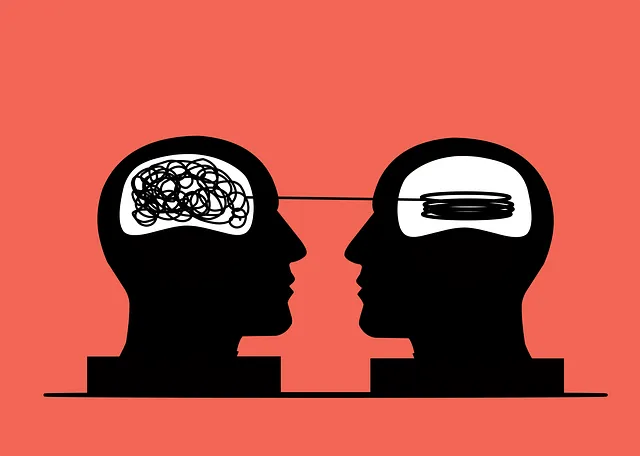Northglenn Kaiser Permanente stands out for its crisis intervention strategies, focusing on immediate and effective support that builds individual resilience. Their evidence-based approach combines Cognitive Behavioral Therapy (CBT), communication skills, and emotional intelligence to address diverse mental health crises influenced by cultural and personal factors. Early intervention and community education through mental health literacy training are key, ensuring timely support and referrals. Post-crisis care includes tailored recovery services like individual therapy and group programs, fostering community understanding and reducing stigma. This holistic approach enhances overall well-being within Northglenn Kaiser Permanente's comprehensive mental health services.
“In times of crisis, immediate and effective intervention can be life-saving. This comprehensive guide by Northglenn Kaiser Permanente delves into crucial strategies for navigating mental health crises within the community. From identifying signs of distress to implementing evidence-based support, it offers a practical framework.
We explore early intervention techniques and emphasize the importance of prevention. Additionally, this article highlights post-crisis care and recovery services provided by Kaiser Permanente, showcasing their commitment to holistic mental health support.”
- Understanding Crisis Intervention: A Northglenn Kaiser Permanente Guide
- Identifying Mental Health Crises in the Community
- Evidence-Based Strategies for Effective Support
- The Role of Early Intervention and Prevention
- Post-Crisis Care and Recovery Support Services at Kaiser Permanente
Understanding Crisis Intervention: A Northglenn Kaiser Permanente Guide

In the realm of mental health services, Northglenn Kaiser Permanente stands as a beacon of guidance during crises. Their crisis intervention strategies are designed to offer immediate and effective support, focusing on empowering individuals to navigate challenging situations. The guide they’ve developed emphasizes the importance of early intervention, recognizing that timely support can prevent escalation and promote recovery.
This comprehensive resource delves into various techniques, highlighting the role of Emotional Intelligence in managing crises. By fostering inner strength development, Northglenn Kaiser Permanente aims to equip individuals with the tools needed for anxiety relief. The guide’s practical approach includes strategies for de-escalation, communication, and building resilience, ensuring folks can navigate their crises with support and hope.
Identifying Mental Health Crises in the Community

In identifying mental health crises within the community, especially in areas like Northglenn where Kaiser Permanente offers comprehensive mental health services, a nuanced approach is essential. The first step involves recognizing the diverse range of presentations that indicate a crisis, which can vary greatly based on individual and cultural factors. For instance, what may manifest as heightened anxiety in one person could be expressed as severe depression or even psychotic symptoms in another, highlighting the need for Cultural Sensitivity in Mental Healthcare Practice.
Community members, including healthcare workers, educators, and law enforcement officers, play a pivotal role in early detection. Training and education on mental health literacy can empower them to identify warning signs such as sudden changes in behavior, persistent feelings of sadness or hopelessness, or severe stress that impairs daily functioning. By fostering Positive Thinking and promoting open conversations about mental health, these community stakeholders can ensure that individuals experiencing crises receive timely support and appropriate referrals to services like Kaiser Permanente Northglenn’s mental health programs, ultimately contributing to better Anxiety Relief and overall well-being.
Evidence-Based Strategies for Effective Support

At Northglenn Kaiser Permanente mental health services, evidence-based strategies play a pivotal role in delivering effective support to individuals facing crises. These approaches, grounded in rigorous research, ensure that every intervention is tailored to meet the unique needs of the client. One such strategy is Cognitive Behavioral Therapy (CBT), which helps individuals identify and challenge negative thought patterns, thereby improving their emotional well-being. CBT not only equips people with practical tools for stress management but also enhances their ability to cope with future challenges.
Additionally, communication strategies form a crucial component of crisis intervention. Trained professionals employ active listening, empathy, and open dialogue to create a safe space where individuals feel heard and understood. This supportive environment facilitates honest conversations, enabling clients to express their feelings and fears openly. By integrating evidence-based practices such as CBT with effective communication techniques, Northglenn Kaiser Permanente ensures comprehensive and impactful crisis support for all who access their services.
The Role of Early Intervention and Prevention

Early intervention plays a pivotal role in crisis management, especially when coupled with robust mental health services like those offered by Northglenn Kaiser Permanente. By implementing strategies that focus on prevention, communities and healthcare providers can foster a sense of resilience among individuals at risk. This proactive approach aims to address emerging issues before they escalate into severe crises, utilizing resources effectively.
The process involves promoting emotional well-being through various techniques such as building empathy, which serves as a cornerstone for understanding and supporting individuals in distress. Additionally, Inner Strength Development programs can empower people to navigate challenges, fostering self-reliance and adaptive coping mechanisms. These strategies not only help prevent crises but also contribute to the overall enhancement of mental health and well-being within communities.
Post-Crisis Care and Recovery Support Services at Kaiser Permanente

After a crisis situation, providing adequate care and support for individuals’ recovery is essential, and Northglenn Kaiser Permanente takes this aspect seriously. They offer comprehensive post-crisis care and recovery support services tailored to meet various needs. The mental health services at Kaiser Permanente Northglenn are designed to help individuals navigate the aftermath of traumatic events or conflicts. This includes individual therapy sessions where patients can process their experiences, develop coping strategies, and work towards emotional healing.
Additionally, they facilitate group support programs that foster a sense of community and understanding among those who have gone through similar crises. These groups provide a safe space to share stories, learn conflict resolution techniques, and reduce the stigma associated with mental illness. By combining individual therapy with group support, Kaiser Permanente Northglenn ensures a holistic approach to recovery, empowering individuals to rebuild their lives and regain a sense of control after a crisis.
In conclusion, Northglenn Kaiser Permanente’s comprehensive crisis intervention strategies guide emphasizes the critical role of early identification and evidence-based support in addressing mental health crises within the community. By integrating effective strategies and post-crisis care, Kaiser Permanente’s mental health services aim to foster recovery and enhance well-being for all individuals involved. This resource serves as a testament to the organization’s commitment to revolutionizing crisis intervention and promoting vibrant, bustling communities across Northglenn and beyond.



